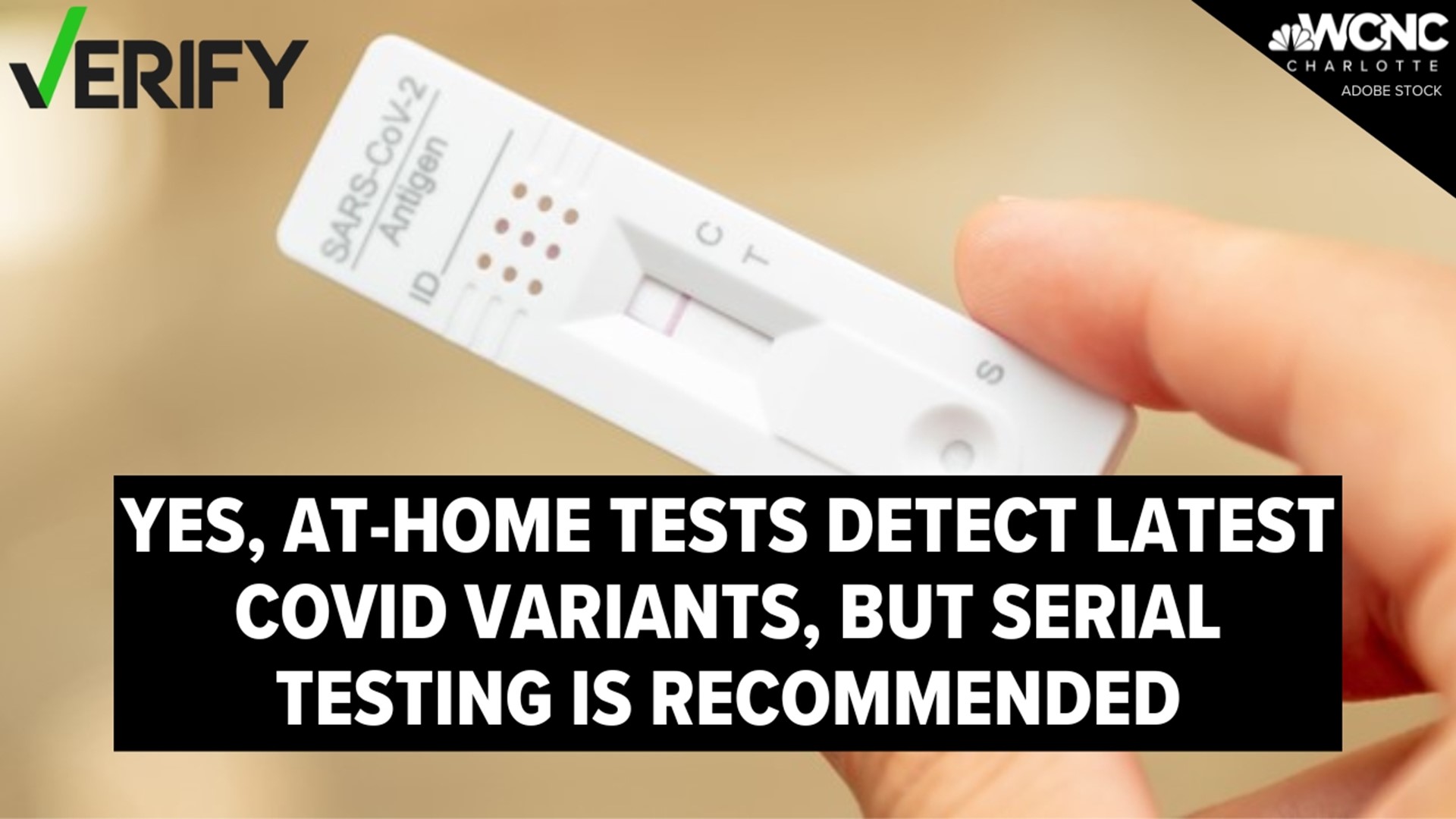CHARLOTTE, N.C. — Amid concerns over a so-called "tripledemic," or the intersection of COVID-19, influenza and RSV, doctors are urging people to do all they can to stay healthy and ease the hospital burden.
Some of that might involve testing for COVID-19 to avoid spreading it to others, but with yet another coronavirus variant taking over as dominant right now, do the at-home tests still detect the circulating strains?
The Question
Do the at-home COVID-19 tests still detect the dominant variants of the virus?
The Sources
The Answer
Yes, the at-home tests still detect the circulating coronavirus variants, but it's important to use the tests correctly since they can be less sensitive to the omicron variant.
According to the CDC's variant tracker, omicron subvariants BQ.1 and BQ.1.1 collectively, are the newly dominant strain of COVID-19 in the U.S.
For those with old COVID-19 tests from earlier in the pandemic, it's important to first check their expiration dates. Since the FDA has extended some of the dates, it's possible to use the kits beyond what's printed on the label.
If the tests are not expired, at-home kits should still detect this latest version of omicron. However, the FDA says false negative results are possible due to reduced sensitivity to omicron subvariants and encourages "serial testing," or using multiple at-home tests following any negative result, regardless of whether a person has symptoms.
"It is wise to wait another 24 to 48 hours and take another test and ensure that one is negative as well," Dr. Althoff said.
The FDA says its serial testing recommendations are based on research showing repeat testing increases the chance of an accurate result when dealing with omicron infections and using at-home antigen testing kits.
Contact Vanessa Ruffes at vruffes@wcnc.com and follow her on Facebook, Twitter and Instagram.
VERIFY is dedicated to helping the public distinguish between true and false information. The VERIFY team, with help from questions submitted by the audience, tracks the spread of stories or claims that need clarification or correction. Have something you want VERIFIED? Text us at 704-329-3600 or visit VERIFY.

